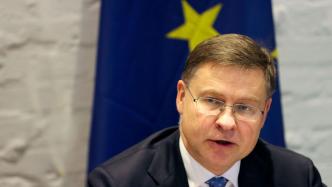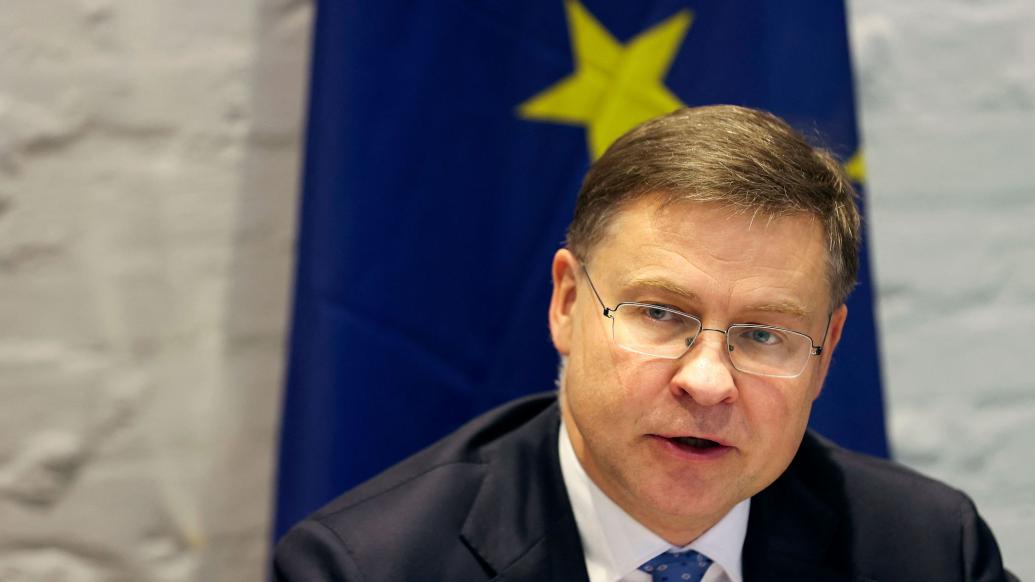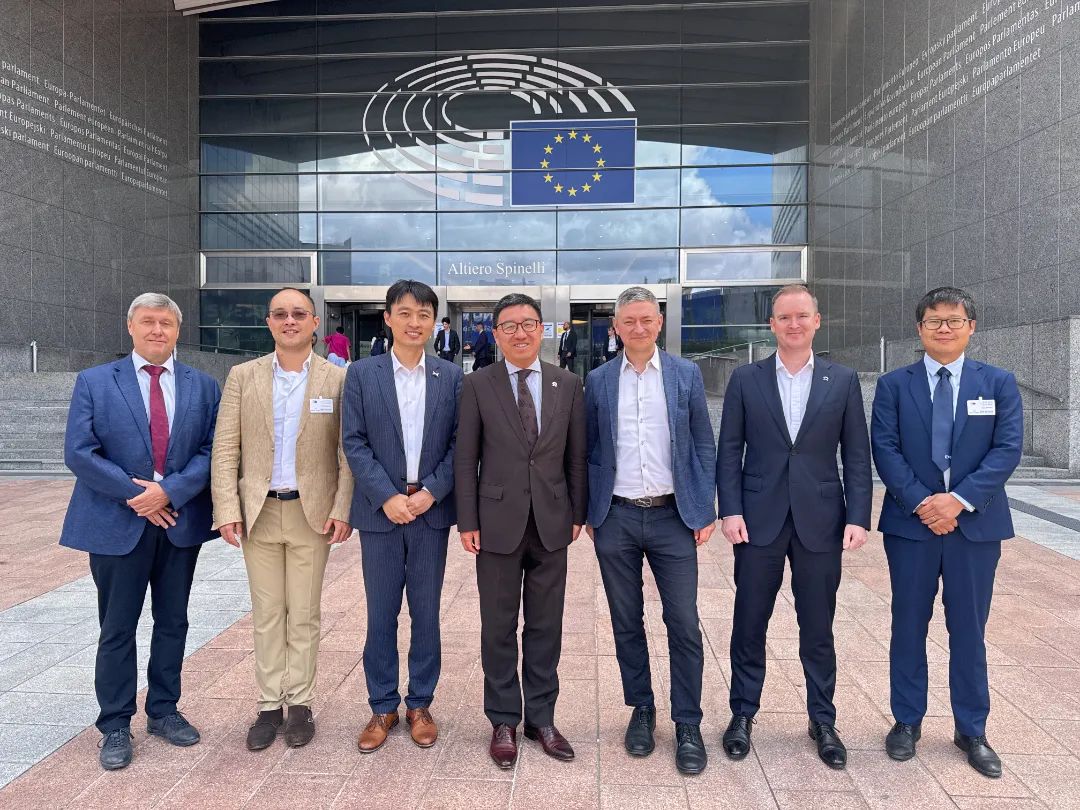
According to the Ministry of Commerce website, on June 22, Minister of Commerce Wang Wentao held a video conference with European Commission Executive Vice President and Trade Commissioner Valdis Dombrovskis at his request. The two sides agreed to launch consultations on the EU's anti-subsidy investigation into Chinese electric vehicles.

Dombrovskis, Executive Vice President of the European Commission, in Leuven, Belgium, April 5, 2024, local time.
The EU also issued a statement on the same day saying that Dombrovskis and Wang Wentao "had a frank and constructive conversation on the EU's anti-subsidy investigation into electric vehicles produced in China" and "agreed to engage based on facts and in full respect for WTO rules."
Previously, the European Union announced that a temporary tariff of up to 38.1% on electric vehicles imported from China would take effect on July 4.
German Vice Chancellor and Minister of Economic Affairs and Climate Protection Habeck recently visited China. He tried to promote trade negotiations between China and Europe, because once the EU's tariff policy on China is implemented, German car companies that have deep roots in China will suffer great impact.
Austria's Standard reported on the 23rd that after the European Commission announced that it would impose tariffs on Chinese electric vehicles, local consumers' interest in Chinese electric vehicles has increased rapidly recently. BYD's Austrian dealers said that buyers are very interested. Obviously, many potential customers are trying to buy vehicles quickly.
The New York Times said Germany is crucial for China to prevent new European tariffs. To prevent the tariffs, Beijing needs to convince the majority of EU member states to veto the European Commission's decision.
The Global Times quoted experts as saying that the best outcome of the negotiations is that the EU repeals its tariff decision before July 4.
But the commission, analysts and the European trade lobby stressed that negotiations would be a major undertaking and that China would need to be willing to make major concessions.
Asked whether the EU might remove restrictions on its tariff plans, Alicia Garcia Herrero, a senior researcher at EU affairs think tank Bruegel, said the commission could not change a decision it had been pondering for months.
According to Reuters, a European Commission spokesman said on June 24 that the EU believes that any negotiation outcome must effectively address the issue of harmful subsidies.
Maximilian Butke, executive director of the German Chamber of Commerce in China, said there was zero chance of removing the preliminary tariffs before July 4 unless China addressed all the issues raised by Europe.
China has previously denied allegations of unfair subsidies or overcapacity, saying the development of its electric vehicle industry is the result of technological, market and industry supply chain advantages.
Despite calling for negotiations, China also said it was ready to take countermeasures if the EU did not give in and held Brussels fully responsible for the escalation of tensions, according to the Global Times.
China's Ministry of Commerce confirmed last week that China is considering launching an anti-dumping investigation into pork imported from Europe, as well as anti-subsidy investigations into European dairy products and large-displacement engine fuel vehicles.
China may raise tariffs to 25 percent on European cars with engines of 2.5 liters or more, said Jacob Gunter, chief analyst at MERICS, a Berlin-based China institute.


